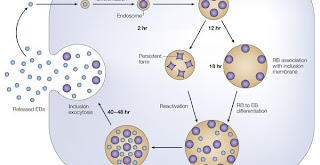 |
| Chlamydia Infection in men and women |
A sexually transmitted infection or STI can
be a major disruption to your health. If these are left untreated, these
infections can also cause damage to your sexual organs. It is understood that an
STI like chlamydia isn’t always detected straight away because of a lack of
symptoms. So before any STI can cause any further damage to your health, it’s
important to go for regular STI tests so that they can be detected early
enough.
Chlamydia is a bacterial infection caused
by Chlamydia trachomatis and this is the most common STI. In the UK there are
new cases reported almost daily. Although everyone who is sexually active is at
risk of contracting this infection, it’s more common in people between the ages
of 16 and 24. Sexually active individuals or persons who have sexual
relationships with multiple partners are at a greater risk of getting affected
by STI causing microbes. Luckily
treating chlamydia is straightforward, provided that it’s administered before
the infection has had time to cause other complications
The common symptoms of chlamydia are
discharge from the rectum and/or genitals in both men and women. Sexual
intercourses can also become more difficult for women who suffer from chlamydia.
The usual treatment for chlamydia is antibiotics. Antibiotics like
azithromycin, doxycycline, etc. are generally prescribed for treating
chlamydia.
Doxycycline slows down the spread of
infection and is taken in low doses over a few days. It is also prescribed for
preventing malaria. This antibiotic has fewer side effects and is a wide
spectrum drug. In other words, it can cure a wide range of ailments, but
doxycycline is found to be an effective treatment for malaria and sexually
transmitted infections.








